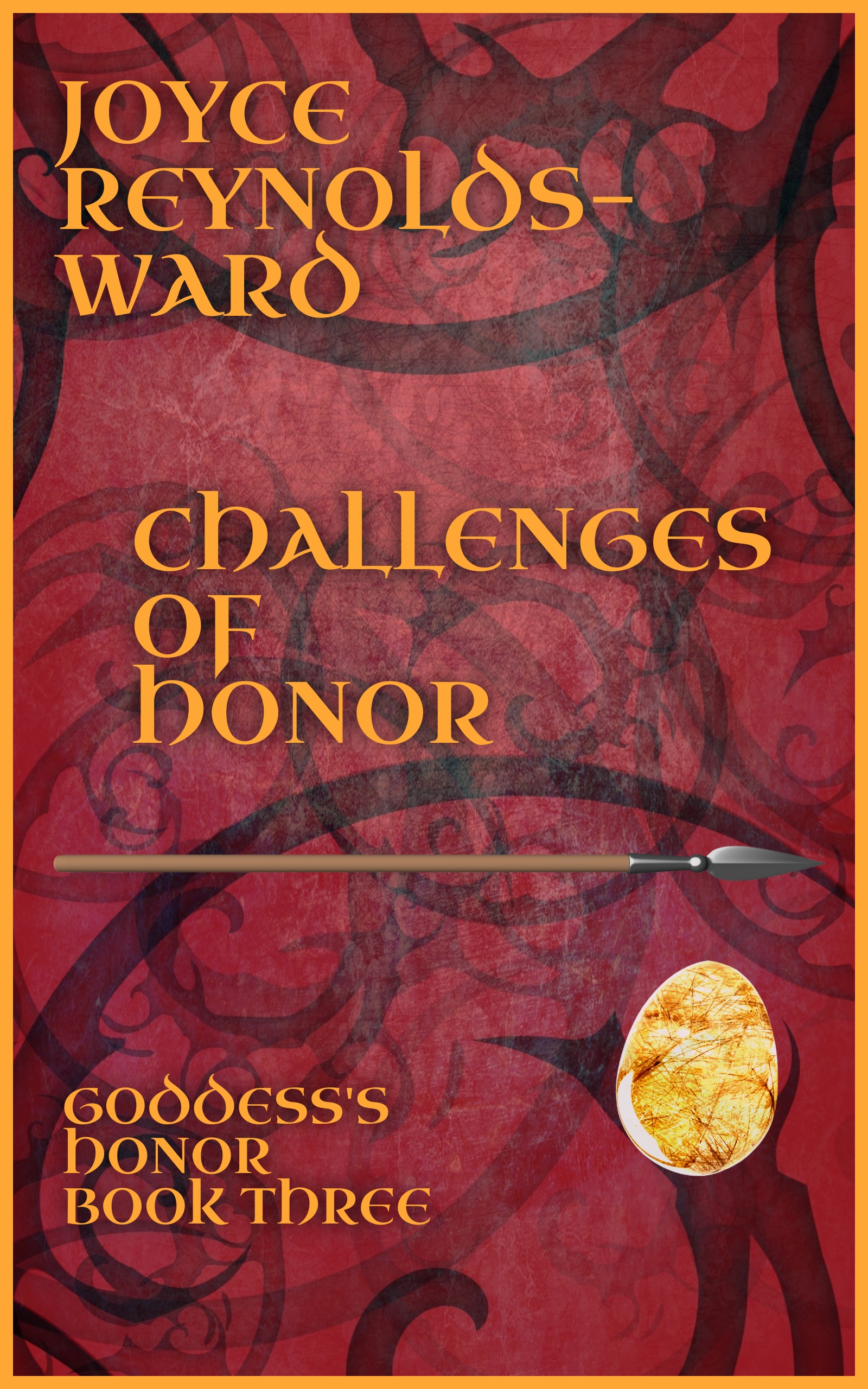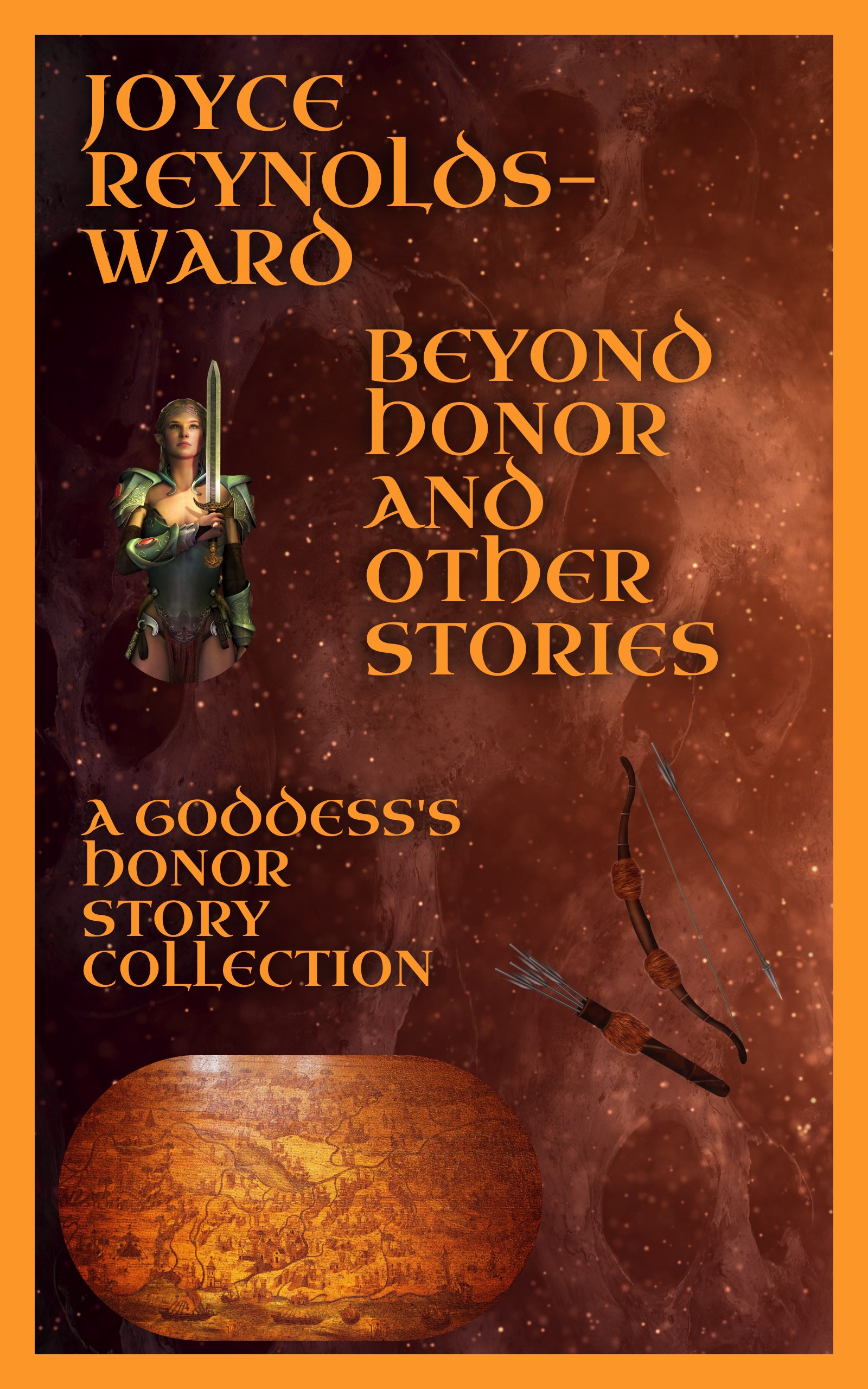

Welcome! This year I’m creating a set of posts/blogs/whatever you want to call them about the “story-behind-the story” for my backlist. This month, the Goddess’s Honor series, my non-European high fantasy books, are the focus.
Housekeeping note: all related posts will be linked at the bottom on the Substack links.
I’ve never been a fan of hard and fast magic systems with a set of consistent rules. In part that’s because consistent, hard magic systems might as well be technology, at least in my opinion. Hard magic systems are simply a different form of technology and, well, if you want those, dig into the ties to tech (and right now creative brain is saying well, aren’t the systems you wrote into Netwalk and the Martiniere books hard magic under the guise of tech? Maybe…but while Netwalk rules are discoverable, there’s a lot in the mind control and digital thought clone realms that slides into magic under a different name…and we’re not talking about those books right now).
For me, one of the consistencies about a magic system is that it can be unpredictable. In the world of Goddess’s Honor, part of that unpredictability comes from the divine sources of magic. The pantheon in Goddess’s Honor, the Seven Crowned Gods, squabble and love just like the assorted pantheons one encounters throughout many religious structures in our world. Success and failure can come through divine whims and moods.
But there’s another source of magic in Goddess’s Honor, and that comes from the land itself. Each nation has a tutelary spirit of sorts which can help or hinder its leadership, depending on that leadership’s relationship with the land. If the land turns its face from the Leader, the Emperor, whoever holds the title of power…their rule will eventually fail. Given that a lot of magical tools come from the land—magic-infused wool, magic-infused berries, magic-infused wood, for three examples—for this to happen to a ruler becomes a significant turning point in their leadership. Lose the favor of the land and…that leads to first, failures of the magical crops, then the mundane crops.
Does this mean everyone can wield magic? Only to the degree that magical tools and a mix of magic and technology exists. There are still practitioners of magic. For some, their primary role is to serve as a representative for the God they serve. For others, magic is a part of their working role, whether as Healer, ruler, cook, or maker, amongst others. These magics are more constrained and focused upon specific tasks. Their magic is more predictable because they serve a necessary function within society and it’s rare that those practitioners will be called to do more than their daily functions.
(Unless the Gods decide to get involved. Which happens.)
A handful of practitioners possess the ability to wield magic beyond their work. Even then, abilities vary.
But magic is a part of everyday life, especially in the nations located in the land of Varen. For someone living in Varen, the potion whipped up by a local healer might possess some magical elements. Certain clothing items might be woven from magical wool to improve durability while traveling or working outside. A protective charm for a child. Wooden boxes to hide important items. A charm to keep bugs and rodents out of food supplies. Magically skilled people have speaking squares and communicators made of magic-infused wool or wood, spell-locked to certain people.
In the Darani Empire, magitech is even more pervasive. A combination of magic and internal combustion drives vehicles—prohibitably expensive, of course. Magic does run out so alternative fueling also is needed. But even these devices are failing within the run of Goddess’s Honor because the land rejects its Emperors, so magic is less durable.
Then there are the sorcerous sailships that travel the oceans. Sailships are made from magic-infused wood, and piloted by Sorcerer-Captains who go through a secretive initiation (described in The Goddess’s Choice) for which there are only two alternatives—succeed or die. Sorcerer-Captains are dedicated to Terat of the Waters, the Sea-goddess whose influence extends inland not just because of her ties to water but to sap within trees and other plants.
Which leads us to the Seven Crowned Gods.
First is Artel, the Judge, who breaks ties and evaluates the hearts of the dead. Then are Two-faced Staul, the Balancer and Destroyer, and his love Dovré. Staul and Dovré share a role in healing, with Staul’s acolytes often being the ones to guide the dying through their final passage. But Staul as the Destroyer can be horrific should that role completely control an acolyte. It often takes Dovré’s intervention to rebalance Staul. Terat of the Waters, beloved of all those whose work is with water but who also blesses the inland realm of Clenda, where rumor has it that she first emerged from a lake sacred to her hidden deep in the Clendan mountains.
Then come the problematic three. Nitel is the Lady of Vengeance, and it is only her deepest, evil blood-red side which appears in Goddess’s Honor. Her children Karnoi of War and Cirdel of Disorder are problematic, whimsical, and can either create or destroy. They can and will turn on their mother.
The Seven make periodic appearances in Goddess’s Honor, and their current feud shapes many of the events that the protagonists face. They’re not shy about manipulating those humans dedicated to them, and particularly prominent humans in life may end up becoming the Voice, Speaker, or Messenger for their patron after death, especially in appearances to family members. They operate according to their own rules and traditions, and there are times when a God is deposed in favor of a recently dead human who steps up to Godhood. While some sorcerers believe they can manipulate magic and events to make themselves Gods—it isn’t that easy.
But the thing to keep in mind is that the Gods have their own standards, and humans are not aware of them. The Gods are also very aware that at some point they, too, could be replaced, just as many of the current Gods replaced a predecessor. Replacing a God is rare but…when one of the Seven begins to overreach and seek dominance over their peers…that’s when they are at most risk of replacement.
Which ends up being a factor in Goddess’s Honor.
Gods and Goddesses can also be banished from a nation for a generation or so. Most of the Seven keep this in mind and modulate any dominance desires accordingly. But Nitel, Karnoi, and Cirdel….
To say more gives away far too much of the story. But, essentially, the thing to keep in mind when reading Goddess’s Honor is that the magic system is a soft one, not a hard system, and not all of the rules are known or disclosed.
The books of Goddess’s Honor:
This month these books go on sale for a week except for Beyond Honor, which is permanently at $2.99. This week Pledges and Challenges are $2.99. Next week will be Choices, and Judgment the week after. Click on each title for a universal ebook link that gives you a choice of which distributor to buy from (in other words, you have an option besides Amazon).
Beyond Honor and Other Stories

